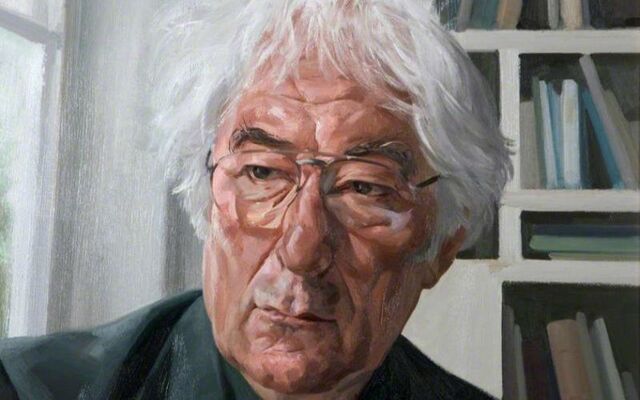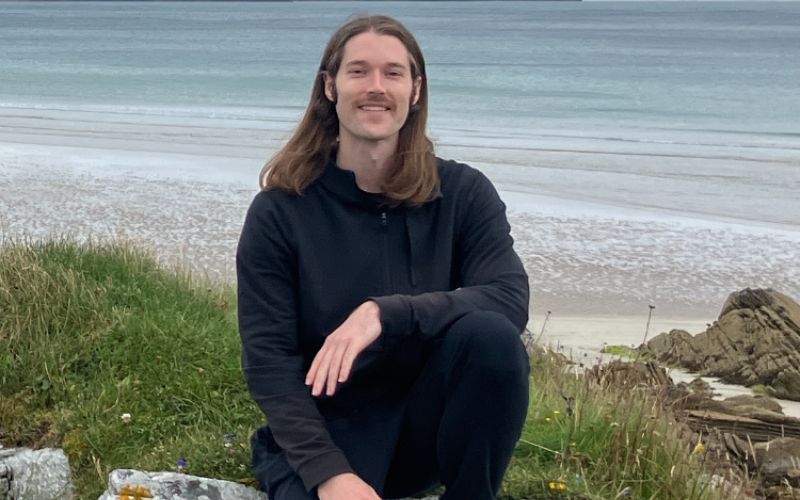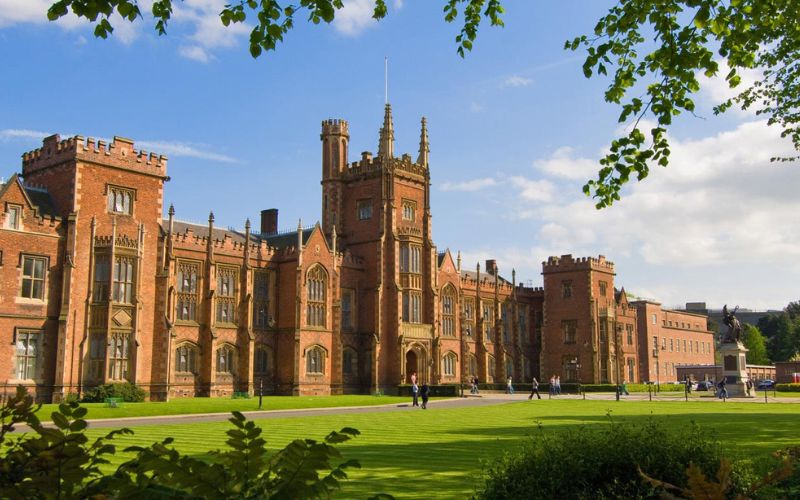The Seamus Heaney Centre at Queen's University Belfast continues the beloved Irish poet's legacy, giving new writers, critics, and poets a chance to fulfill their literary ambitions.
Each year, the Centre appoints three Seamus Heaney Fellows, writers of distinction in any genre or form. One of its first Fellows was Lisa McGee, the creator of "Derry Girls". The stage and screenwriter was born in Derry-Londonderry and later attended Queen’s University Belfast to read Drama.
Heaney often said that he was born in Bellaghy but it was in Belfast that he became a poet. He spent his formative years in Bellaghy, Derry-Londonderry, where the Seamus Heaney HomePlace honors his legacy. Between Heaney’s childhood homes at Mossbawn and The Wood, the HomePlace is at the heart of the landscape, which was a source of much of his inspiration.
In 1959, while studying at Queen’s University Belfast, Heaney published his first poems in the student Magazines Q and Gorgon, before going on to complete a Diploma in teaching at St Joseph’s College of Education, in Belfast.
He regularly wrote poems and stories under the penname 'Incertus' (Latin for 'Uncertain'). Today, the Seamus Heaney Centre holds an archive featuring the student magazines in which these early poems were published.
Heaney was part of ‘The Group’ poetry workshop, along with luminaries like Philip Hobsbaum, Michael Longley and Bernard Maclaverty. Heaney said: “When I was at Queen’s…. ‘life’ and ‘literature’ were beginning to connect.” Fast forward to 2004 – then a Nobel Prize-winning poet – at the opening of The Seamus Heaney Centre, ‘Burial at Thebes’, Heaney’s version of Sophocles, ‘Antigone’ premiered at The Abbey Theatre in Dublin.
As the University celebrates its 180th anniversary, the sense of a creative community is very much alive and at the heart of Queen’s. The Seamus Heaney Centre – part of the School of Arts, English and Languages – is home to some of the UK and Ireland's foremost poets, novelists, scriptwriters and critics.
In 2024, the Centre moved to a new landmark building, where Bath Short Story Award winner Connor Donahue recently completed his Graduate Studies in Creative Writing. He had the opportunity to work with David Park, whose novel ‘The Truth Commissioner’ won the Christopher Ewarts-Biggs Memorial Prize, recognizing works that promote peace and reconciliation in Ireland.
Connor, originally from Kansas City, spent a year in Belfast on a Graduate Visa. He said: “The immersion in the writing culture, being surrounded by other aspiring artists as well as extremely accomplished instructors, was very impactful for me. That shared sense of purpose and of wanting to support and promote each other’s progress was especially meaningful.”
Connor added: “The atmosphere at the Seamus Heaney Centre is extremely collaborative, supportive and encouraging. Exactly the type of place where one would want to study or write. There is a pronounced sense of belonging and of shared values and goals. I lived on Mount Charles, just behind the new center, and the updated facilities are incredible.”
Just a short walk from Queen’s University Belfast’s iconic Lanyon building, the Seamus Heaney Centre boasts a large venue space, scriptorium, offices, and creative spaces for students and staff. There is also a public exhibition area that displays the Seamus Heaney Archive held by Queen’s.
The Seamus Heaney Centre focuses on all aspects of writing craft and criticism, feeding into the wider reach of English Literature studies at Queen’s. Postgraduate courses lead the way in creative writing, poetry, and English literary studies teaching and practice, including Graduate Studies and PhD programs in English Literature, Poetry, and Creative Writing.
The Centre benefits from being part of a wider interdisciplinary school, bringing together studies in drama, film, music, and languages. Part of a worldwide network of writers and critics, the Centre supports the development of creative and interdisciplinary collaborations and hosts readings and performances throughout the year. Most of all, it’s a place for writers and poets to flourish alongside a global network of alumni and friends.
You can find out more information about Queen's University Belfast here and you can also follow them on Facebook, and Instagram.






